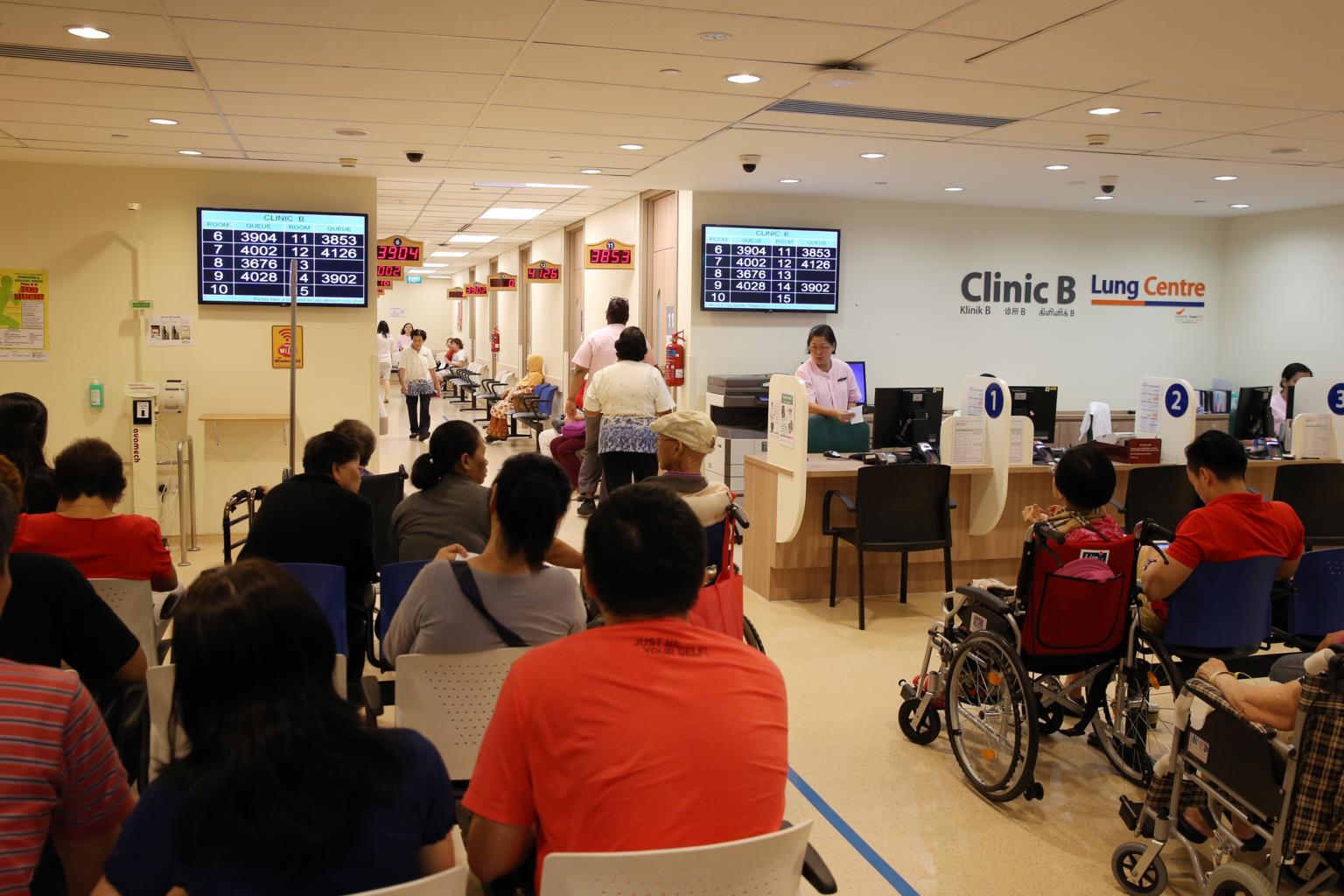Essential services to drive rise in services inflation this year, but overall prices to remain in check: MAS
Sign up now: Get ST's newsletters delivered to your inbox

An outpatient clinic at SGH. Healthcare is one of the essential services that will lead to a rise in services inflation this year.
PHOTO: ST FILE
SINGAPORE - Inflationary pressures are in check, although higher costs are expected for essential services in such areas as education, healthcare and domestic services, the Monetary Authority of Singapore (MAS) said on Friday (April 26).
It noted that cheaper oil and reduced prices stemming from the open retail electricity market here will help keep a lid on overall costs.
The MAS forecast that core inflation, which strips out private transport and accommodation costs, is likely to come in near the mid-point of its revised forecast range of 1 per cent to 2 per cent this year.
The MAS forecast that core inflation, which strips out private transport and accommodation costs, is likely to come in near the mid-point of its revised forecast range of 1 per cent to 2 per cent this year.
This is down from an earlier forecast of 1.5 per cent to 2.5 per cent but its tip for headline inflation remains at 0.5 per cent to 1.5 per cent, it noted in its biannual macroeconomic review.
UOB economist Barnabas Gan said the move to tighten monetary policy here twice last year will also help keep inflation in check as a stronger domestic currency makes imports cheaper.
"If that continues to play out for the rest of the year, coupled with the lower oil prices and the open electricity market, the overall climate for inflation will likely stay in check for 2019," he added.
While core inflation for the first quarter edged down to 1.6 per cent compared with last year, services inflation rose on the back of a hike in bus and train fares last December.
The MAS said: "Essential services inflation should pick up further when the increase in the non-concessionary foreign domestic worker levy takes effect from April 2019.
"In comparison, healthcare subsidies under the Merdeka Generation Package will come into effect only in the latter half of 2019, with a limited disinflationary impact on services inflation this year."
Essential services inflation is estimated to be around 3 per cent this year, up from 2 per cent last year. Firmer growth in labour costs in this sector over recent quarters will likely filter through to the overall price of services as well.
Meanwhile, inflation for the whole services sector is expected to come in above the 1.5 per cent recorded in 2018. Prices in segments like retail are likely to stay relatively flat this year as are private road transport costs. The pace of decline in accommodation prices should ease more as well.
Although global food prices are falling at a slower pace, import prices are unlikely to accelerate, said the MAS.
But it warned that pressures may emerge for categories affected by "transitory shocks", citing a pick-up in prices of imported eggs, which rose almost 30 per cent year on year in January and February due to supply constraints in Malaysia.
Food inflation on the whole is expected to come in above the 1.4 per cent recorded in 2018.
Separately, the labour market is tipped to remain firm this year despite slowing growth, with wages projected to ease only slightly.
Job growth broadened in the second half of last year, with gains spread across the trade-related, domestic-oriented and modern services clusters, said the MAS.
It added that both resident and overall unemployment rates edged up 0.1 percentage point in the fourth quarter of last year while retrenchments remained "broadly stable at a low level" in the second half of 2018.


